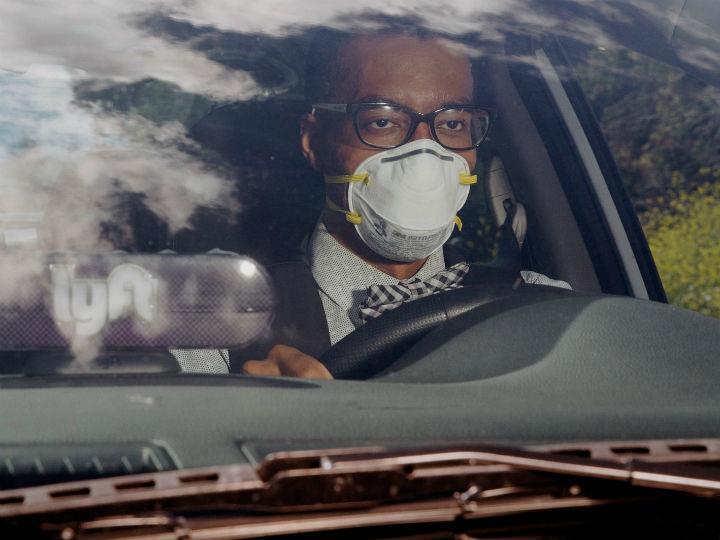by Brian Gallagher*
As someone who has been involved in community-building and post-disaster work for nearly 40 years, I know there are typically three stages that occur in the wake of a catastrophe: response, recovery and rebuilding.
Response is how society reacts in the immediate aftermath. Are people able to get shelter, food and medical supplies? Are they able to access pre-existing systems, like emergency aid, quickly and easily? Do they have hope that they can get back on their feet in a reasonable time frame?
Next comes recovery. Recovery consists of the establishment of relief funds and coordinated networks of care. It includes public policy actions, volunteer mobilization, and cross-sector partnerships that make a difference by leveraging the resources of the private sector with the community knowledge of civil-society organizations. In the case of COVID-19, recovery also includes getting back to work safely.
It’s critical that people get involved in the decision-making process during recovery, because their needs are crucial to the third stage, rebuilding. Rebuilding shouldn’t be about standing up a home in the same place as before. Rebuilding should focus on long-term planning that helps people come back stronger by rethinking new systems that make entire individuals and communities more resilient and successful.
United Way has been involved in community-building and disaster response for more than 130 years. We got our start in the US in the late 1800s because the citizens of Denver, Colorado came together after a devastating flood. We grew in the first half of the 20th century behind the power of “War Chests” and “Community Chests” that allowed people to pool money for important social causes. We now operate in more than 40 countries and territories around the world, bringing the public sector, private businesses and non-profits together to solve each community’s toughest socio-economic challenges.
We’ve combined the lessons of our past with current, innovative solutions to form the core of our COVID-19 response, recovery and rebuilding work. Since March, United Way has raised about $900 million through local, national and global funds, established innovative partnerships with some of the world’s biggest companies to raise money and awareness of ongoing COVID-19 challenges, and been a critical advocate for struggling families and the non-profit sector during these challenging times.
Yet, soon enough, response and recovery will – and must – give way to rebuilding. Unfortunately, I have learned during my career that rebuilding is often the step that gets overlooked by political and economic leaders whose interests are served by the structures of the existing system. Yet if we want to avoid, or at least minimize, future calamities, our global community must embrace these core concepts as we rethink our society and rebuild:
1. Strengthen community equity and resiliency
Global disruptions, whether man-made or natural, will become more common. Nations, communities and individuals must be prepared to endure them and bounce back. That means ensuring that everyone has the requisite levels of health and economic security to avoid dependency, control their fate and re-emerge stronger.
2. Think bottom-up, not top-down
Resiliency is inherently shaped by each community’s unique needs. Therefore, the best way to ensure that individuals and communities can take care of themselves is to embrace solutions developed at the community level. For too long, civil society institutions, including United Way, have been guided by logic models drafted at centralized locations instead of ideas and priorities that emanate from people on the ground. That must change.
3. Avoid “back to normal” thinking
COVID-19 exposed failing systems in the United States and elsewhere because it has been like a slow-moving, powerful hurricane wreaking damage everywhere, instead of isolating its effects to one location. If Hurricane Katrina ripped the roof off the shortcomings of New Orleans in the US, then coronavirus is tearing apart the very foundation of society’s entire house. Just-in-time supply chains and overwhelmed unemployment systems don’t need to be patched over – they need to be torn apart and rebuilt with people’s modern-day needs, not the private sector’s or the bureaucracy’s, put first.
Society’s response to COVID-19 is exposing which communities are resilient and which systems are helping people succeed. Unfortunately, from virus testing to support for the unemployed, too many systems are failing because too many political, economic and social institutions are not designed to put people first. They’ve fallen victim to the status quo or, worse yet, special interests.
As we move toward the rebuilding stage of COVID-19, let’s ignore the instinct to go back to the way things were. Around the world, hundreds of millions of people have been living in poverty or stuck without a path up the socio-economic ladder. Instead, let’s listen to individuals and leaders closer to the ground, support and scale their best ideas, and rebuild our society stronger than before. Let’s demand that national, corporate and civil society leaders re-examine the way they work individually and collectively, in order to empower people who know their communities best and can create sustained progress toward greater opportunity for all.
Let’s learn important lessons from COVID-19 and be better prepared for what comes next.
*President and Chief Executive Officer, United Way Worldwide
**first published in: www.weforum.org




 By: N. Peter Kramer
By: N. Peter Kramer
